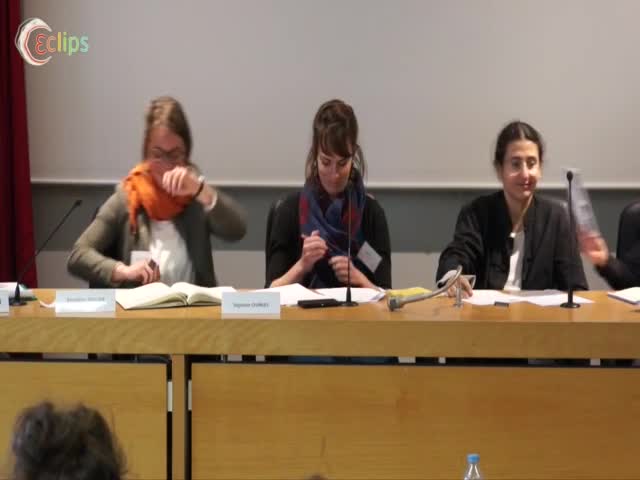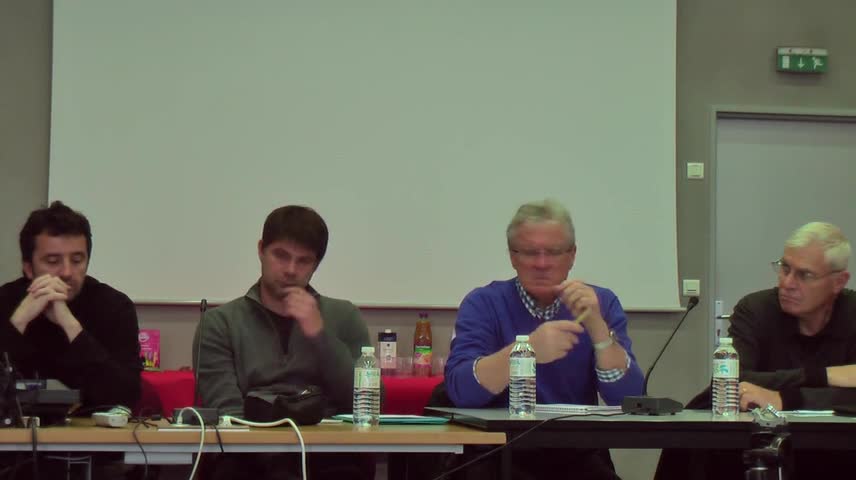Notice
Majorities Against Utility : Implications of the Failure of the Miracle of Aggregation
- document 1 document 2 document 3
- niveau 1 niveau 2 niveau 3
Descriptif
La sagesse collective : principes et mécanismes
Colloque des 22-23 mai 2008, organisé par l'Institut du Monde Contemporain du Collège de France, sous la direction du Professeur Jon Elster.
Intervention de Bryan Caplan, George Mason University, 23 mai 2008
A surprising conclusion of modern political economy is that democracies with highly ignorant voters can still deliver very good results as long as voters' errors balance each other out. This result is known as the Miracle of Aggregation. This paper begins by reviewing a large body of evidence against this Miracle. Empirically, voters' errors tend to be systematic; they compound rather than cancel.
Furthermore, since most citizens vote for the policies they believe are best for society, systematic errors lead voters to support socially suboptimal policies. The paper then considers the case for "paternalistically" vetoing popular but misguided democratic decisions, presenting several arguments that overruling democratic decisions is much less objectionable than overruling individual decisions. In fact, since democracies routinely adopt paternalistic policies, the opponent of paternalism for individual decisions should embrace paternalism for democratic decisions. The paper concludes byconsidering several different mechanisms for improving upon majority rule.
Thème
Documentation
Liens
Sur le même thème
-
L’intersciences, ou la croisée des intelligences : comment unir la puissance de l’abstraction et la…
BERTHET Philippe
Intelligence, rationalité, adaptabilité sont pour l'homme question d'échelle. À l'échelle de la toile, l'espace se rétrécit et le temps s'accélère : oubliés le lent souffle des grandes découvertes,
-
Table ronde 2 "La dimension hybride et transversale des démarches démocratiques en architecture et …
MACAIRE Élise
LONGEOT Léa
Le développement, depuis les années 90 en France, des conseils de quartiers, réunions de concertation ou autres assemblées consultatives, témoigne de la volonté des élus et des acteurs de la ville d
-
02 - "Les ambitions déçues de la démocratie urbaine dans les quartiers populaires"
KIRSZBAUM Thomas
Le développement, depuis les années 90 en France, des conseils de quartiers, réunions de concertation ou autres assemblées consultatives, témoigne de la volonté des élus et des acteurs de la ville d
-
04 - Conférence "Ambitions et désillusions de la participation"
PONTIER Jean-Marie
Le développement, depuis les années 90 en France, des conseils de quartiers, réunions de concertation ou autres assemblées consultatives, témoigne de la volonté des élus et des acteurs de la ville d
-
03 - "Un regard sur les travaux du colloque pour réfléchir aux limites de la paticipation"
DENèFLE Sylvette
Le développement, depuis les années 90 en France, des conseils de quartiers, réunions de concertation ou autres assemblées consultatives, témoigne de la volonté des élus et des acteurs de la ville d
-
01 - Introduction au colloque "Expériences et limites d'un idéal de démocratie"
BRESSON Sabrina
MOZOL Patrick
Le développement, depuis les années 90 en France, des conseils de quartiers, réunions de concertation ou autres assemblées consultatives, témoigne de la volonté des élus et des acteurs de la ville d
-
MARIO SOARES L'EXIL D'UN DEMOCRATE PRO-EUROPEEN
VASCONCELOS Álvaro de
SOARES Isabel
ARAUJO Christophe
MARTINS Guilherme d'Oliveira
MORIN Edgar
Le 25 avril 2024 marquera le 50e anniversaire de la révolution des Œillets qui a mis fin à 48 ans de dictature et d'empire colonial, tout en déclenchant une vague démocratique en Europe et dans le
-
Introduction séminaire : "La participation des habitant(e)s : Limites, obstacles, insuffisances et …
BRESSON Sabrina
ECLIPS est un programme de recherche de l’université François-Rabelais de Tours (UMR CITERES et EA LERAP), financé par la Région Centre, qui réunit des chercheur-e-s en sociologie, droit et sciences
-
Philosophie politique et société démocratique
CRUZ REVUELTAS Juan Cristóbal
Juan Cristobal Cruz, enseignant-chercheur au département de philosophie de l’université autonome de l’Etat de Morelos au Mexique, nous parle de philosophie politique et de la société démocratique
-
4. Jacques Rougerie et l'association
FAYOLLE Caroline
BRAIBANT Sylvie
Lors du quatrième temps de la journée d’étude sur l’historien Jacques Rougerie, Caroline Fayolle explore la manière dont la notion d’association se manifeste comme fil rouge dans les travaux de l
-
International colloquium on public space democracy
GöLE Nilüfer
OUZIEL Pablo
TUNCEL Gökçe
JUNES Tom
DE SOUZA Peter Ronald
CARRERA Judit
DORNHOF Sarah
BéJA Jean-Philippe
VEG Sebastian
UNGUREANU Camil
FADIL Nadia
WIDRICH Mechtild
TEMIR BEYLERYAN Nazli
BELCHEVA Ina
YıLDıZ Misal Adnan
TINIUS Jonas
WANG Jing
DANESH Parand
BENFODIL Mustapha
LHUISSET Émeric
GARCíA SáNCHEZ Pedro José
Знеполски Боян
PublicDemoS Project explores the ways in which Public Space allows the appearance of actors and manifestation of cultural differences.
-
L'Europe en mal d'Amérique latine
COMPAGNON Olivier
Le destin de l'Europe se confond avec celui des Lumières et avec un message philosophique qui fait de la liberté de penser la clef de l'émancipation et peut concerner les autres continents. Sa














